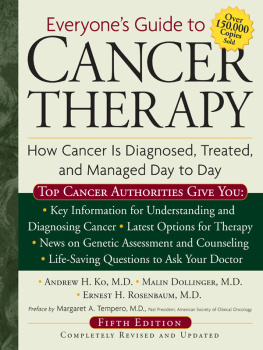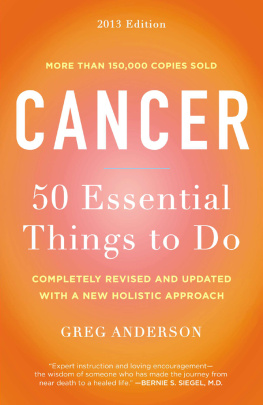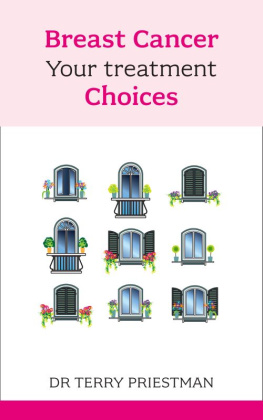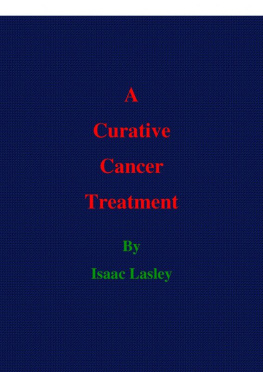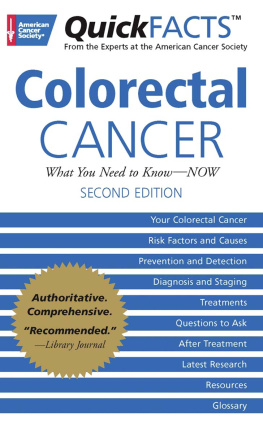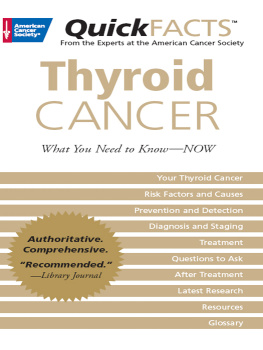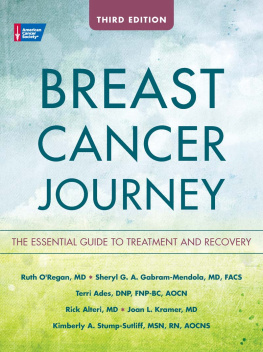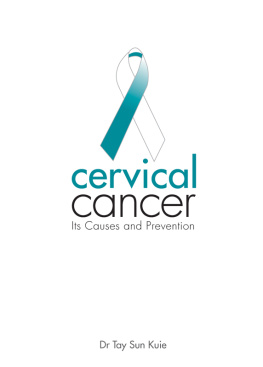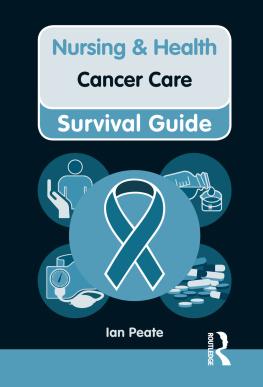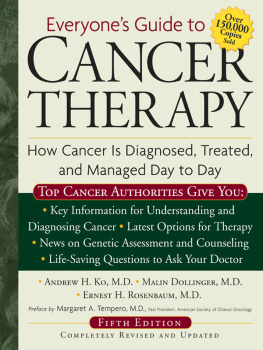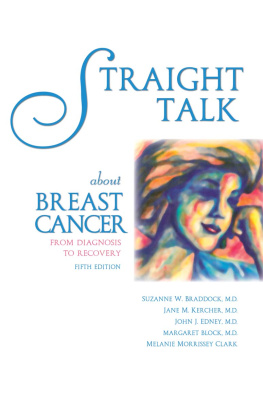EVERYONES GUIDE TO
Cancer Therapy
Other Books in the Series
Everyones Guide to Cancer Supportive Care
Everyones Guide to Cancer Survivorship

Everyones Guide to Cancer Therapy, Revised Fifth Edition, copyright 2008 by Andrew H. Ko, M.D., Malin Dollinger, M.D., and Ernest H. Rosenbaum, M.D. All rights reserved. No part of this book may be used or reproduced in any manner whatsoever without written permission except in the case of reprints in the context of reviews.
Andrews McMeel Publishing, LLC,
an Andrews McMeel Universal company
1130 Walnut Street, Kansas City, Missouri 64106.
First edition, 1991. Second edition, 1994. Third edition, 1997. Fourth edition, 2002.
APPR
www.andrewsmcmeel.com
Library of Congress Cataloging-in-Publication Data
Ko, Andrew.
Everyones guide to cancer therapy : how cancer is diagnosed, treated, and managed day to day / Andrew Ko, Ernest Rosenbaum, Malin Dollinger. Rev. 5th ed.
p. cm.
Rev. ed. of: Everyones guide to cancer therapy / Malin Dollinger [et al.], 2002.
Includes index.
E-ISBN: 978-0-7407-8631-0
1. cancerPopular works. I. Rosenbaum, Ernest H. II. Dollinger, Malin. III. Everyones guide to cancer therapy. IV. Title.
RC263.D59 2008
616.99406dc22
2007021127
ATTENTION: SCHOOLS AND BUSINESSES
Andrews McMeel books are available at quantity discounts with bulk purchase for educational, business, or sales promotional use. For information, please e-mail the Andrews McMeel Publishing Special Sales Department:
To our spouses,
Christine Olivia Ko, Lenore Dollinger,
and Isadora Rosenbaum
for all their love and support
and
To Vincent DeVita Jr., M.D., and
Susan Molloy Hubbard, B.S., R.N., M.P.A.,
for their vision, ingenuity, and dedication
in creating PDQthe Physician Data Query.
Contents

by Richard Bloch
by Margaret A. Tempero, M.D., Deputy Director, UCSF Comprehensive Cancer Center, and Past President, American Society of Clinical Oncology
PART ONE
Diagnosis and Treatment
PART TWO
Supportive Care
PART THREE
Quality of Life
PART FOUR
New Advances in Research, Risk Assessment, Diagnosis, and Treatment
PART FIVE
Treating the Common Cancers
Foreword

In 1978, I was diagnosed with terminal lung cancer. I was given three months to live and told there were no treatments that could help me. The following week, I went to a major cancer center in another state, where the doctor told me I could be cured.
Over the next three years, I learned a great deal about cancer. It is an extremely complex disease. There are hundreds of types and stages, with numerous treatment methods available. Progress in finding more effective treatments is being made at a staggering rate, and I soon came to realize there is no conceivable way any single human being could know the latest and most appropriate treatment for every kind of cancer. It is difficult to keep up with every current treatment for even one kind of cancer. Yet if cancer is to be beaten, it must be treated promptly, properly, and thoroughly. There is often no second chance.
I also came to realize that if a doctor is unaware of the latest and best treatment for an individual patient, all the researchall the work done and all the money spentis wasted as far as that patient is concerned. Many lives can be lost not because treatments to cure or control a cancer havent been discovered, but because the physician may be unaware of them.
In 1981, I was chairman of the board of H&R Block, Inc., my familys income tax firm. We had acquired a computer service company in Columbus, Ohio, named CompuServe. One of its services was a network whereby anyone with a computer could call a local telephone number, be connected with the huge mainframes in Columbus, and get all kinds of information instantly. One kind of information service offered was news.
When a newspaper is set today, it is done on a computer, and CompuServe had arrangements with eleven major newspapers in the United States to have their articles fed into the companys mainframes as they were set. At night, I could contact CompuServe with my home computer and read the next mornings New York Times, Los Angeles Times, Washington Post, or Chicago Tribune. I could read the front page, the editorial page, the sports or financial columns, or whatever I selected. And I could read it before the people in those cities could get their paper locally.
It seemed obvious that, in the same way, a continually updated computer database of the latest cancer treatments could instantly deliver state-of-the-art information to any practicing physician in his or her own office.
The National Cancer Institute (NCI) had been working along similar lines. The institute had the task of developing effective methods to prevent, diagnose, and treat cancer and was given additional resources by Congress to develop a program to disseminate cancer information.
First, since an international research data bank had already been established, in 1974, NCI began developing specialized systems to aid in collecting information to be made available to the scientific community. Mary Lasker, a member of the National Cancer Advisory Board at that time, requested that NCI publish a book of treatment protocols to help practicing physicians find out about promising investigational therapies. She also asked that the book be updated every six months, but it wasnt feasible to prepare the equivalent of a textbook on clinical cancer research and change it semiannually.
In response, Dr. Vincent T. DeVita Jr., then the director of NCIs Division of Cancer Treatment, decided to develop a computerized database called CLINPROT (Clinical Protocols) containing information on protocols supported by the institute. By 1980, Dr. DeVita had established a working group to expand the database with state-of-the-art treatment information and to make it available to the growing number of physicians with personal computers.
In 1981, I communicated to Dr. DeVita my idea of having an easily accessible database of cancer therapies. He heartily agreed about how important it was to communicate fresh information directly to physicians and explained that NCI was developing such a database in two stages. The first stage involved adding a geographic matrix to CLINPROT, allowing physicians to identify investigational studies by area and other factors. This new file would be called PDQ1. The second stage involved adding state-of-the-art treatment information to PDQ1 and developing a comprehensive directory of physicians and treatment facilities that could be contacted for cancer care. This expanded database was named the Physician Data Query system but came to be known simply as PDQ.
I was so enthusiastic about this project that I assembled a group of donors to purchase a building just off the National Institutes of Health (NIH) campus to house these activities. And in 1982, I became a member of the National Cancer Advisory Board. Throughout my six-year term on the board, I continued to support the development and refinement of the system.

